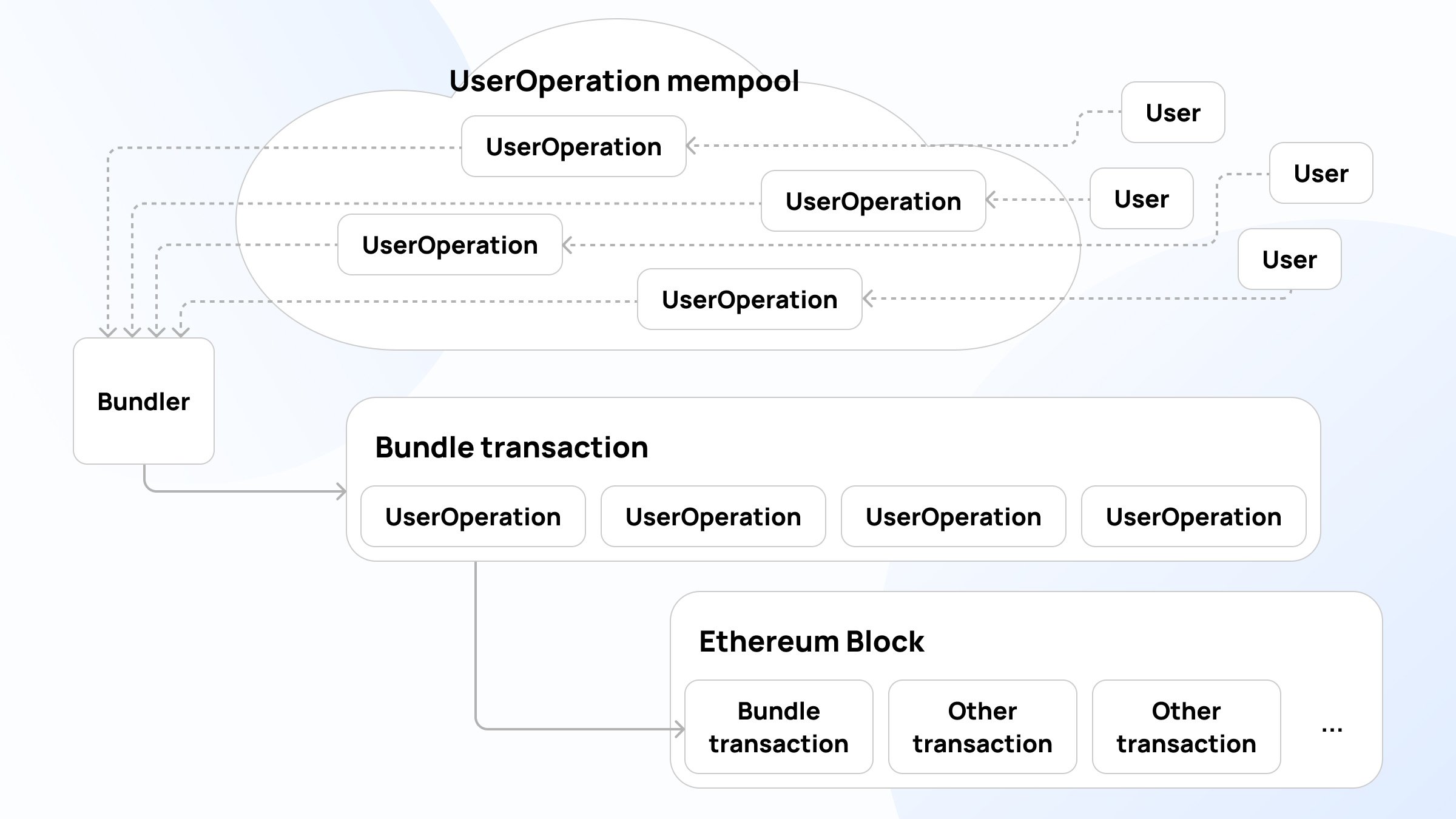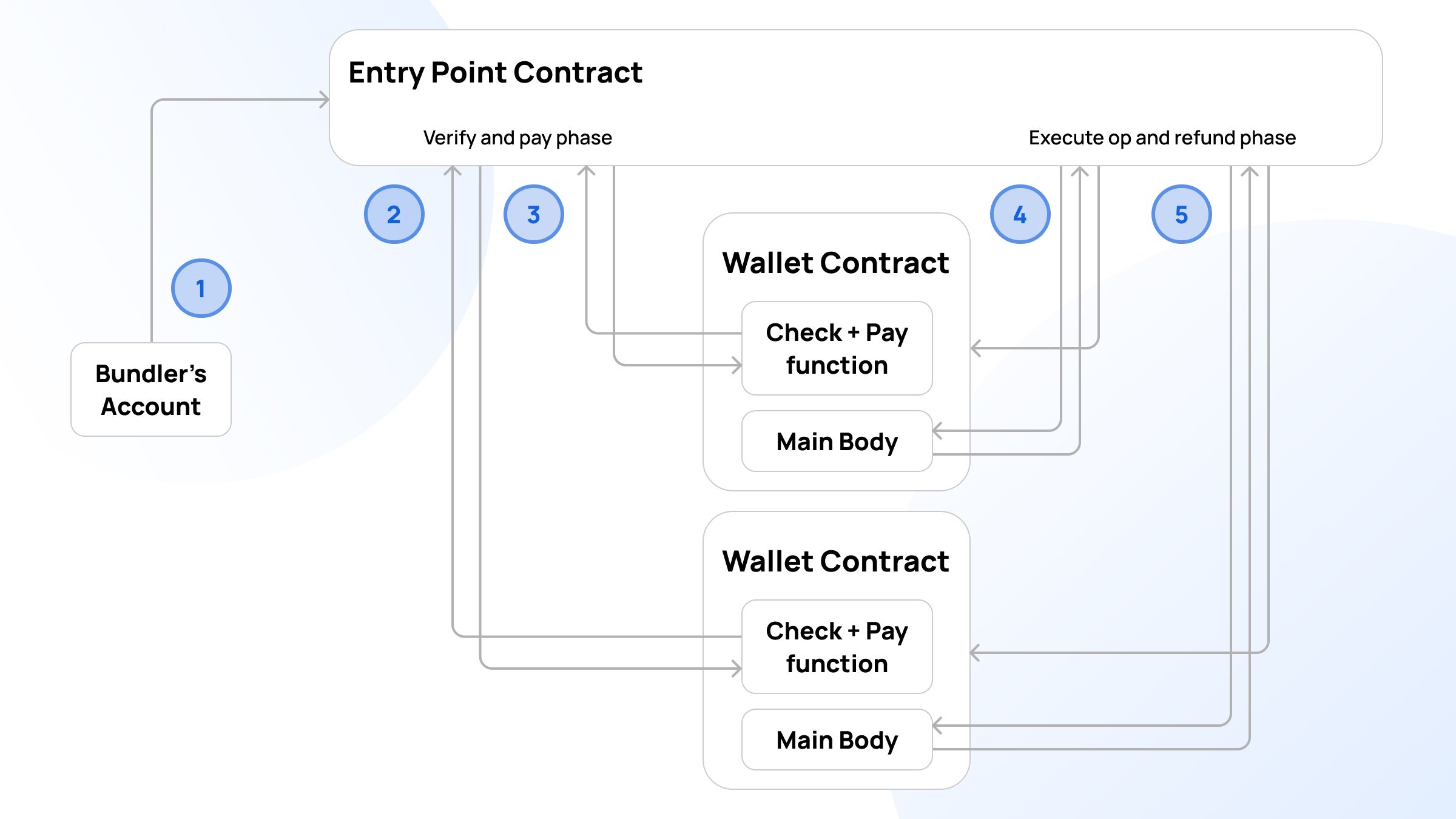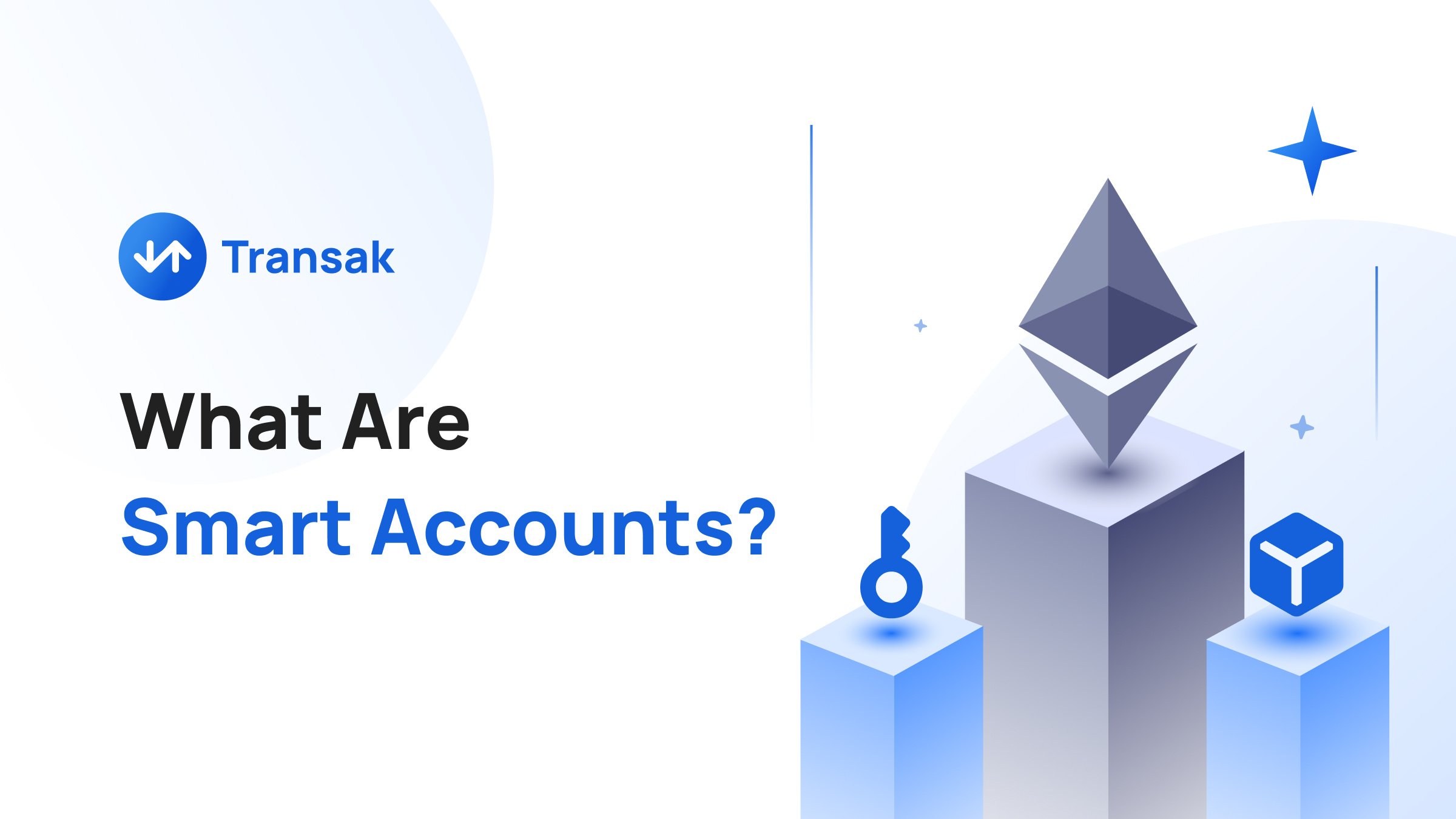Smart accounts are smart contract-controlled digital wallets powered by the ERC-4337 token standard.
Ethereum's co-founder Vitalik Buterin considers smart accounts to be a major wallet security transition. Without this transition, users tend to move towards centralized exchanges because of the difficulties they face managing their EOA wallets.
Smart accounts have attained massive growth, with over 4.3 million total accounts as of May 2024. These accounts also have executed over 16.3 million bundle transactions to date.
What Are Smart Accounts?
Smart accounts or smart contract wallets are the type of accounts hosted as smart contracts on the Ethereum blockchain. Basically, programmable smart contracts control these accounts instead of the commonly used private keys.
The capability of adding custom logic to the smart contract's code allows to include features that provide a better user experience. For example, the batch transaction feature helps combine a many transactions into one, consequently saving on transaction fees.
Smart accounts also have the potential to provide more complex functionalities, which are not limited to interacting or sending and receiving transactions. Instead, these smart wallets can perform high-level programmed functions by deploying them on their smart contracts.
Advantages of Smart Accounts
Pay Gas with ERC-20 Tokens
Smart accounts allow you to pay gas fees with any ERC-20 tokens. Here, you can use tokens other than ETHs to pay the required fees.
As a smart wallet holder, you don't need to have ETH tokens in your wallet to pay the fees. This flexibility in the gas fee payment adds more convenience for holders of other ERC tokens.
Enhanced User Experience
Smart accounts provide an improved user experience with the elimination of private keys. You can now use their smart wallets without the need to store the seed phrase offline.
The removal of these complexities in wallet creation provides you with a better user-friendly experience. Moreover, the simplicity of wallets in interacting with dApps encourages beginners to explore a wide range of crypto platforms and their services.
Batch Transactions
Smart contract wallets efficiently use transaction batching methods while conducting transactions. Here, multiple transactions are executed at once to increase efficiency and reduce manual intervention.
These transactions not only increase the efficiency but also reduce the gas fee in the process. As a result, the gas fees paid for each EOA-based wallet transaction are significantly reduced as multiple transactions are executed simultaneously.
Recurring Activities
Adding customized smart contracts helps you to automate recurring activities using the funds stored in the wallet. Here, you can set instructions for debiting assets from your smart wallet for various weekly or monthly subscriptions.
You can also use smart contract wallets to automate your financial management and save time. For example, you can invest a fixed amount in your favorite cryptocurrencies on a fixed date every month in a disciplined way without worrying about market fluctuations.
What is ERC-4337?
Ethereum blockchain and EVM-compatible networks use ERC-4337, an account abstraction token standard, to power up its smart accounts. This token standard allows you to unlock numerous options like signless transactions and wallet recovery, to name a few.
The Ethereum Improvement Proposal (EIP) for ERC-4337 was put forward in 2021 to allow developers to easily deploy custom smart accounts. Finally, this EIP was accepted and authorized in 2023 as this token standard doesn't need any Ethereum protocol changes.
In this EIP, the logic of the consensus layer is not modified. Instead, the transaction mempool's functionality is replicated in a higher-level system. The concept of this system allows the transformation of the functions on smart accounts to be fully programmatic.
Read our guide to Account Abstraction and ERC-4337 here.
How Do Smart Accounts Work?
The ERC-4337 standard facilitates the working of smart accounts. Here, ERC-4337 uses 'UserOperation' to send blockchain transactions on the user's behalf.

The nodes on the Ethereum network operate as a “Bundler” to collect all received UserOperations. Then, the Bundler packs these collected data into a single bundled transaction by paying the transaction fee in ETH.
The Bundler sends all the bundled transactions to the entry point contract, the global smart contract on the Ethereum blockchain. The entry point contract plays an important role in the smart wallet creation based on the given init code (a creation code for deploying a contract).
Bundler then starts a function call on 'handleOps,' the entry point smart contract where a bundle transaction is received. Also, 'validateUserOp' is invoked for signature authentication and to process the required gas fee payment.

All smart accounts will implement functions like handleOps and validateUserOp and execute the operations provided from the entry point contract.
Finally, all the functions of smart accounts are based on the input programs without the need to rely on private keys.
What Are Externally-Owned Accounts (EOAs)?
Controlled by private keys, EOAs empower users to initiate transactions, manage digital assets, and interact with the decentralized world. Unlike smart contract accounts, EOAs operate independently, making decisions based on the owner's actions rather than pre-written code.
Creating an EOA involves generating a unique pair of cryptographic keys, usually through a wallet application. Once funded with the blockchain's native cryptocurrency, EOAs can send transactions, interact with smart contracts, and participate in a myriad of decentralized applications. This interaction enables activities such as trading cryptocurrencies,participating in decentralized finance, and collecting non-fungible tokens.
Popular examples of EOAs include MetaMask, a browser extension wallet, and various hardware and software wallets that prioritize the security of private keys. Remember, the security of these keys is paramount, as losing them equates to losing access to the associated assets.
While EOAs offer immense flexibility and control, transactions initiated by them incur gas fees, which compensate the network's maintainers for their computational efforts.
EOAs vs. Smart Accounts
Criteria |
EOAs |
Smart Accounts |
|
Control |
This account is controlled by private keys. |
This account is controlled by smart contract codes. |
|
Access |
Private key is necessary for accessing this account. |
This account doesn’t need any key. |
|
Security |
Depends on how the user manages the private key. |
High-end security features, including multisig authentication. |
|
Recovery |
Losing private keys equals losing an account. |
This account can be recovered. |
|
Codes |
Doesn’t have any associated code. |
Have their own associated code. |
Security Benefits of Smart Accounts
Smart accounts allow developers to implement security logic into a smart contract to strengthen wallet security in the following ways:
- Account Recovery: If you're using a smart account, it is possible to recover your wallet in case you lose your device, password, or private key. You can use the allowlist accounts of these wallets to rest access and authorize your wallet on a new device.
- Include Transaction Limits: You can set transaction limits on your wallets on a daily, weekly, or monthly basis. Therefore, even if someone gains wallet access, your funds won't get drained completely and provide you time to safeguard other available assets before the transaction limit expires.
- Account Freezing: This security feature comes in handy when you lose your device, or you observe any suspicious activities on your wallet. Smart accounts allow you to freeze your wallet instantly, restricting the possibility of losing your stored crypto assets.
- Multisig Authorization: If you want higher security protection, you can opt for multisig authorization that allows the sharing of credentials with multiple trusted devices or users. Here, a transaction will only be allowed if a certain percentage of trusted members authorizes it.
- Enable Allowlists: This feature that requires multiple signatures restricts transactions to unknown or unsafe accounts to protect your wallet. Here, if your wallet's access is available to attackers, they can't send funds available to your wallet to other unauthorized wallet addresses.
Conclusion
Smart accounts open up the world for complex functionalities and customized programmable possibilities. These accounts provide a better user experience for users who have faced issues while using the EOA-based wallets and storing their private keys.
The simplicity of smart accounts plays a crucial part in the adoption of web3, where users don't need to bother about losing their private keys anymore. Along with that, batch transactions help users reduce the total gas fees they pay.

